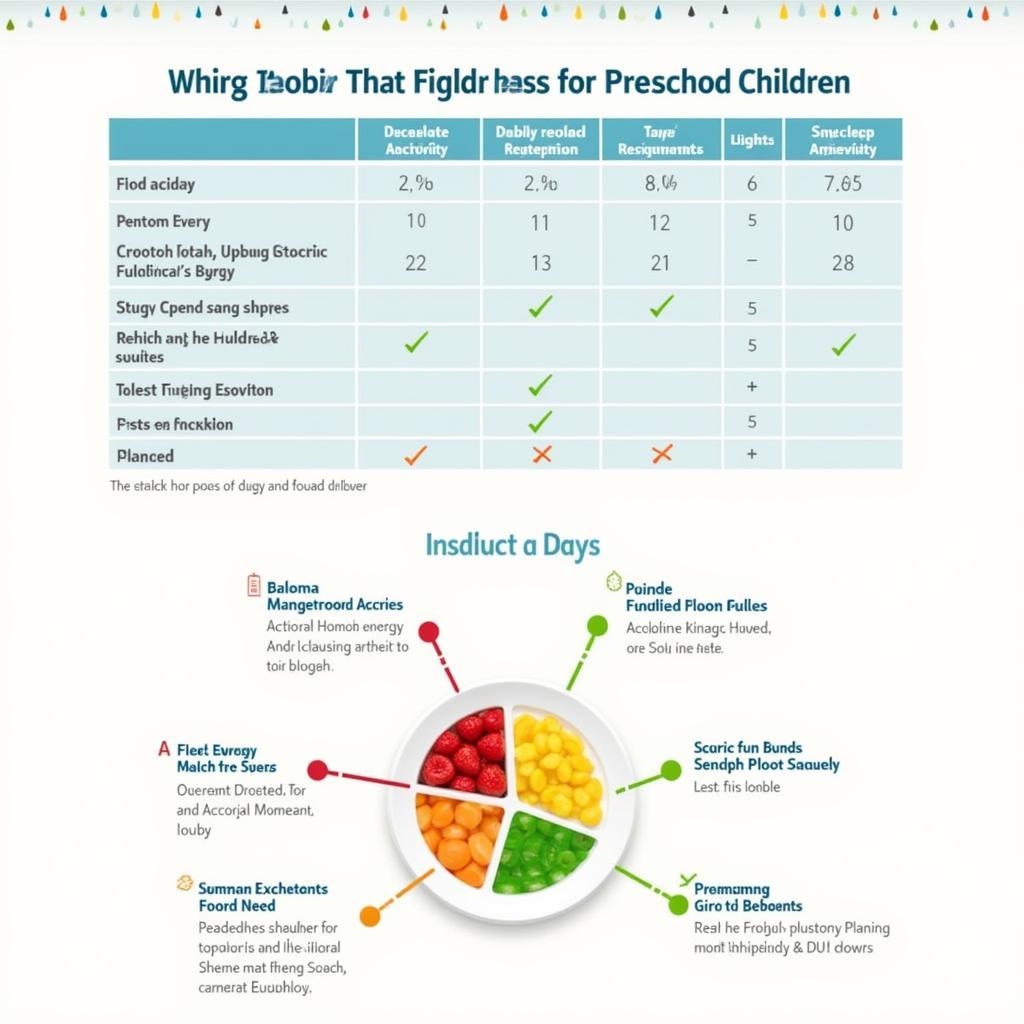“Eat well, grow tall” is a common saying among grandparents and parents. But “eating well” is not enough; “eating right” and “eating enough” are the golden keys to a child’s comprehensive development. So how do you know how much energy your little one needs each day? This article will help you answer questions about calculating energy needs for preschoolers. Preschool teacher skills are also an important factor in helping children enjoy their meals more.
Energy Needs: The Foundation for Holistic Development
Energy is essential for all bodily functions, from running and learning to… breathing! For preschoolers, a crucial stage of physical and intellectual development, providing enough energy is more important than ever. Lack of energy can lead to fatigue, stunted growth, and affect learning and play. Excess energy, on the other hand, causes obesity, posing many health risks later in life.
 Determining calorie needs for preschool children
Determining calorie needs for preschool children
Formula for Calculating Energy Needs for Preschoolers
There are many methods to calculate energy needs, but a simple and easy-to-apply approach is based on a child’s weight and age. Ms. Nguyen Thi Lan Huong, a nutritionist at the National Institute of Nutrition, recommends in her book “Nutrition for Preschool Children”:
- Children aged 1-3 years: Need approximately 100kcal/kg of body weight/day.
- Children aged 4-6 years: Need approximately 90kcal/kg of body weight/day.
For example, if baby Bi is 3 years old and weighs 15kg, his daily energy requirement will be 15kg x 100kcal/kg = 1500kcal.
 Healthy meal plan for preschool children
Healthy meal plan for preschool children
Factors Affecting Energy Needs
Besides weight and age, a child’s energy needs also depend on many other factors such as:
- Activity level: Active children who run and jump a lot will need more energy than less active children.
- Health status: Children who are sick and need to recover also need to be supplemented with adequate energy.
- Individual metabolism: Each child is unique, with different metabolism and energy absorption.
Huong Ngai kindergarten always focuses on developing nutritious menus suitable for each age group and physical condition of children.
Baby Su’s Story
Baby Su, Ms. Hoa’s child, was a picky eater and underweight. Ms. Hoa was worried and forced her to eat a lot, but the situation did not improve. After consulting with experts, Ms. Hoa realized her mistake. Forcing her child to eat not only did not help her eat better but also caused fear and made her even more of a picky eater. Ms. Hoa began to change the way she prepared meals, involving her child in the meal preparation process, and telling stories about different foods. Gradually, baby Su ate better, became happier, and started gaining weight steadily.
 Happy child eating
Happy child eating
Frequently Asked Questions
- How do I know if my child is getting enough energy? Observe your child’s weight and height growth, and activity level. If your child is growing steadily, is energetic and happy, it shows that the nutrition is appropriate.
- What should I feed my child to ensure enough energy? Your child’s menu should be diverse, including all 4 food groups: carbohydrates, protein, fats, vitamins and minerals.
- What to do if my child is a picky eater? Do not force your child to eat. Be patient, change the way you prepare meals, and create a happy and comfortable mealtime atmosphere. You can refer to the creative contest for preschoolers for more ideas to make your child’s meals more appealing.
Conclusion
Calculating energy needs for preschoolers is very important. However, parents also need to be flexible, observe, and adjust to suit each child. Remember that “eating just enough” combined with a healthy lifestyle is the secret to helping children develop comprehensively. Do not hesitate to contact us at 0372999999 or visit us at 234 Hao Nam, Hanoi for more detailed advice. We have a 24/7 customer care team. You can also refer to articles about Tue Tinh kindergarten and clip of child abuse in kindergarten for more useful information. Please leave a comment and share this article if you find it helpful!